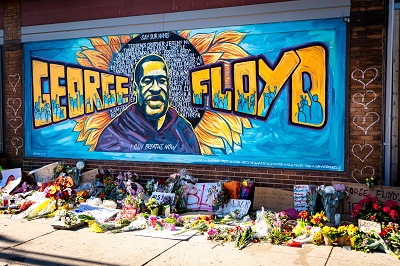What Now? Dealing with the Emotional Aftermath of the Verdict
What Now? Dealing with the Emotional Aftermath of the Verdict

One year ago, the world tuned in to see a man being murdered by a uniformed police officer while onlookers pleaded for mercy. George Floyd’s death led to numerous protests all over the world against police brutality and systemic racism experienced by Black and Brown communities. Although conviction in cases involving police killings are rare, many hoped that the outcome of this trial will be different. Perhaps the video and the parade of witnesses and experts will be enough this time. Still many disengaged from the trial altogether, convinced that “it doesn’t matter anyway”, and “nothing’s going to change.”
While the verdict led to “a collective sigh of relief”, the knowledge that people of color are still being targeted, that there is profound inequity and entrenched systemic racism in all aspects of society, and that true justice may not come in one lifetime leave many people feeling disheartened, angry, frustrated, helpless, sad, numb, and hopeless. For many the verdict is not a celebration. It’s a moment to cry and to grieve.
For people of color, racial trauma can follow sudden experiences (experiencing near death or witnessing a death/life threatening experience such as hate crimes) as well as enduring physical or psychological threat (microaggressions and racial profiling) and often produces feelings of anxiety, fear, depression, helplessness, and post traumatic stress symptoms. Allies and those in positions of privilege may also experience anxiety, depression, guilt, feelings of hopelessness and helplessness as the challenge of dismantling oppressive systems come to view.
How does one navigate these feelings, particularly when incidents of police killings and other injustices against people of color and other marginalized communities surface on a daily basis? How can one support one another? What can one do to work towards a more just, equal, equitable, and safe world for our children?
Here are some things I’ve been doing as a person of color and what I’ve been advising patients to do. Keep in mind that the work against police brutality and racial injustice will take decades. Prepare for a marathon, not a sprint It is important to maintain a healthy cadence and ensure you have the support through the long journey.
First, it is important to acknowledge your feelings. Try not to rush to get rid of the frustration, sadness, anger, helplessness, etc.=Give yourself permission to feel them. It’s important to process what the verdict means to you and what it stirs up in you. Pushing these feelings away isn’t effective and can lead to more psychological and physical problems down the line.
Seek out support. Find a safe space for you to share your thoughts and feelings. Feeling heard, validated, seen can be incredibly powerful and healing. It is important to feel that you are not alone and that you have the support you need to go about your daily life and/or to contribute to change.
Attend to your physical needs. Make sure you get good enough sleep, nourish your body with healthy meals, stay hydrated, and stay physically active. Feeling physically healthy can help you to think clearer and handle daily hassles, life events, as well as unexpected, unpleasant ones more effectively. When we feel run down, we tend to not see the full picture and react to stressors rather than be proactive.
Swap excessive media consumption for deep breathing and mindfulness. Learning to slow down your breathing, paying attention to slowly exhalating. Research shows that this can slow down the sympathetic nervous system’s activation which is responsible for the “fight, flight or flee” response. Mindfulness allows you to redirect your focus on a neutral anchor rather than getting pulled into the images, the “what ifs,” and unhelpful ruminations and emotions.
If you feel helpless or hopeless, keep in mind that there are many things that can be done. The idea that one has to feel motivated or better in order to take action is flawed. Action can bring changes to feelings. Actionable steps can include:
• Checking with your friends, loved ones, co-workers from marginalized groups
• Validate feelings and experiences of people of color and amplify these experiences
• Keeping the injustice in the light
• Standing up to injustice in various forms, such as microaggressions and racist jokes/comments
• Stay connected with organized social justice movements
• Educate self on racial power and privilege
• Use your power and privilege to make changes
However, if you find that you are unable to attend to everyday responsibilities because of persistent, unhelpful feelings and thoughts, it may be time to consider seeking professional help.
















